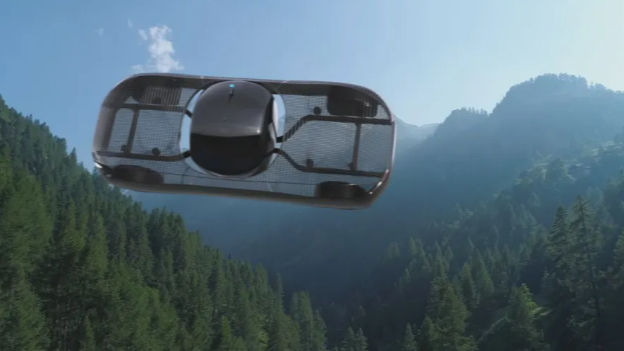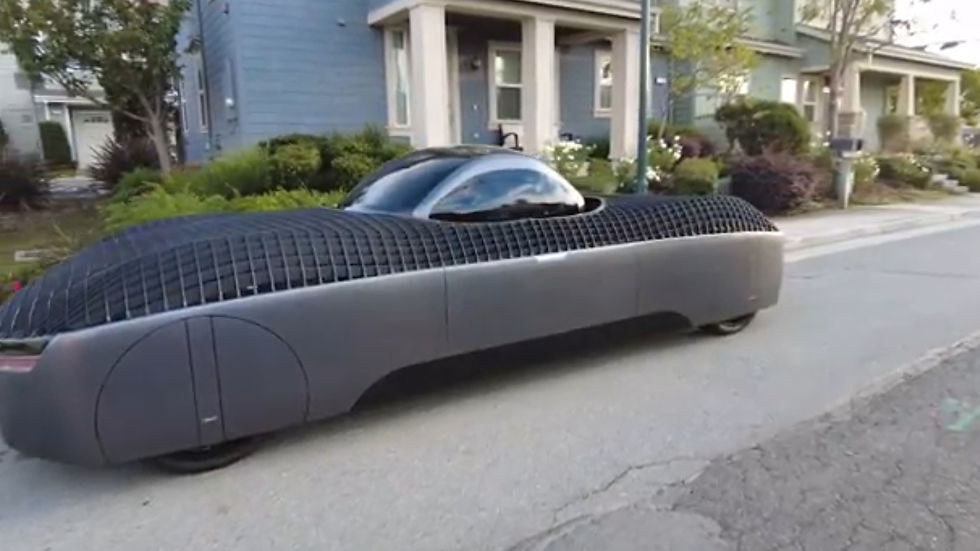Alef Begins Flying Car Test Operations at Silicon Valley Airports
- tech360.tv

- Sep 1, 2025
- 2 min read
San Mateo-based Alef has signed agreements with Hollister and Half Moon Bay airports to commence test operations for its flying car, a road vehicle designed for vertical takeoff. These initial tests will involve the car operating alongside other aircraft types within the air traffic system.

The two Silicon Valley airports could also serve as future bases for flying cars, according to Alef. The company plans to start testing with its Model Zero Ultralight, with intentions to expand its product line to include other Model Zero models and the commercial Model A.
Alef’s website indicates the company has been developing the flying car for nearly a decade, aiming to create its first consumer product, the Alef Model A. Planned operations for the vehicle include driving, vertical takeoff, forward flight, vertical landing, and both air and ground manoeuvring.

The vehicle is classified as “ultralight,” which means the company does not require specific legal certifications for its flight. However, this classification imposes certain restrictions on operators, such as limiting flights to daylight hours.
Furthermore, ultralight vehicles are prohibited from flying over congested or densely populated areas, including cities or towns. Earlier this year, Alef released a video showcasing the 'Ultralight' version of its Model A performing a jump over another vehicle.
The flying car is 100% electric, offering a driving range of 322 kilometres and a flight range of 177 kilometres. Alef's Model A prototype generated significant social media interest in 2022 following its unveiling.
The company stated its flying car uses less energy per trip on average than a Tesla or any other electric vehicle. Jim Dukhovny, Alef’s Chief Executive Officer, noted that Alef is primarily a car utilising automotive infrastructure, its business model, and market.
Dukhovny added that the innovation lies in integrating a car into aviation infrastructure and air traffic. He also highlighted the benefits of electric aviation, stating it is more environmentally friendly, quieter, and requires less space.
He expressed that working in safe, controlled, non-towered airport environments will help Alef, the Federal Aviation Administration, airport operators, and pilots understand future scalability. He found it positive that Silicon Valley airports are embracing electric aviation.
The startup has already secured more than 3,300 pre-orders for its fully electric flying car, which is anticipated to be priced around USD 300,000. Customers can place a pre-order via Alef’s website with a USD 150 deposit.
Alternatively, a payment of USD 1,500 can secure a spot in the priority queue. This collaboration with the two airports could facilitate Alef's introduction of flying car fleets at these key hubs in the future.
This partnership also signals progress for the airports in adopting electric aviation. Furthermore, the upcoming test operations will showcase advanced artificial intelligence-driven safety systems, similar to those found in autonomous vehicles, alongside the fusion of car and aircraft technologies.
Alef has signed agreements to begin test operations of its flying car at Hollister and Half Moon Bay airports in Silicon Valley.
The 100% electric vehicle, classified as "ultralight," boasts a 322-kilometre driving range and a 177-kilometre flight range.
The Model A is designed for driving, vertical takeoff, forward flight, vertical landing, and air and ground manoeuvring.
Source: INTERESTING ENGINEERING


